Updated 22:30 GMT
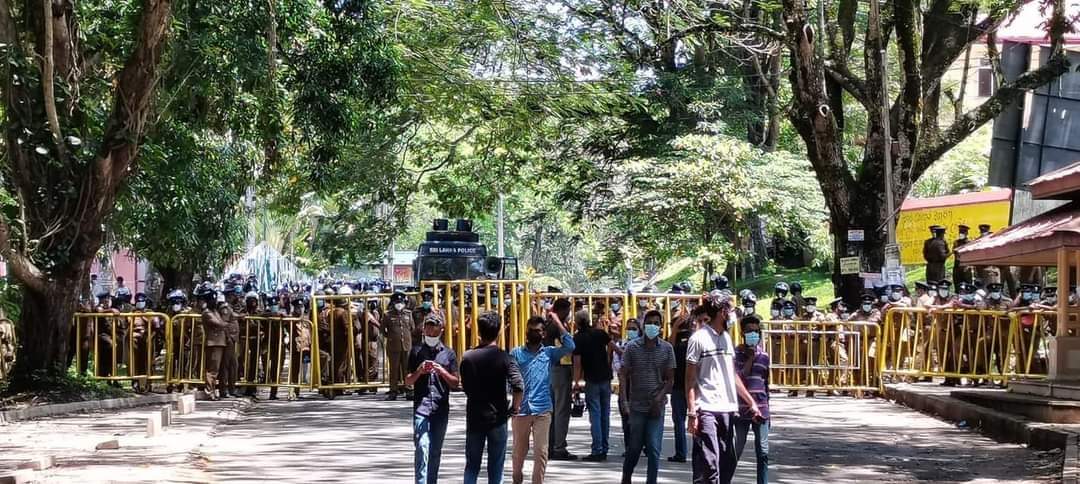
Protestors in Kandy on Sunday, amidst a massive security presence.
Sri Lanka has been thrown into turmoil as all of the government’s cabinet ministers tender their resignation apart from Prime Minister Mahinda Rajapaksa, in the wake of protests as the island plunges into deepening political and economic crises.
“All the ministers submitted their letters of resignation so that the president can constitute a new cabinet,” Sri Lankan parliamentarian Dinesh Gunawardena said. “PM will continue to function," Gunawardena added.
Protests flare across the South
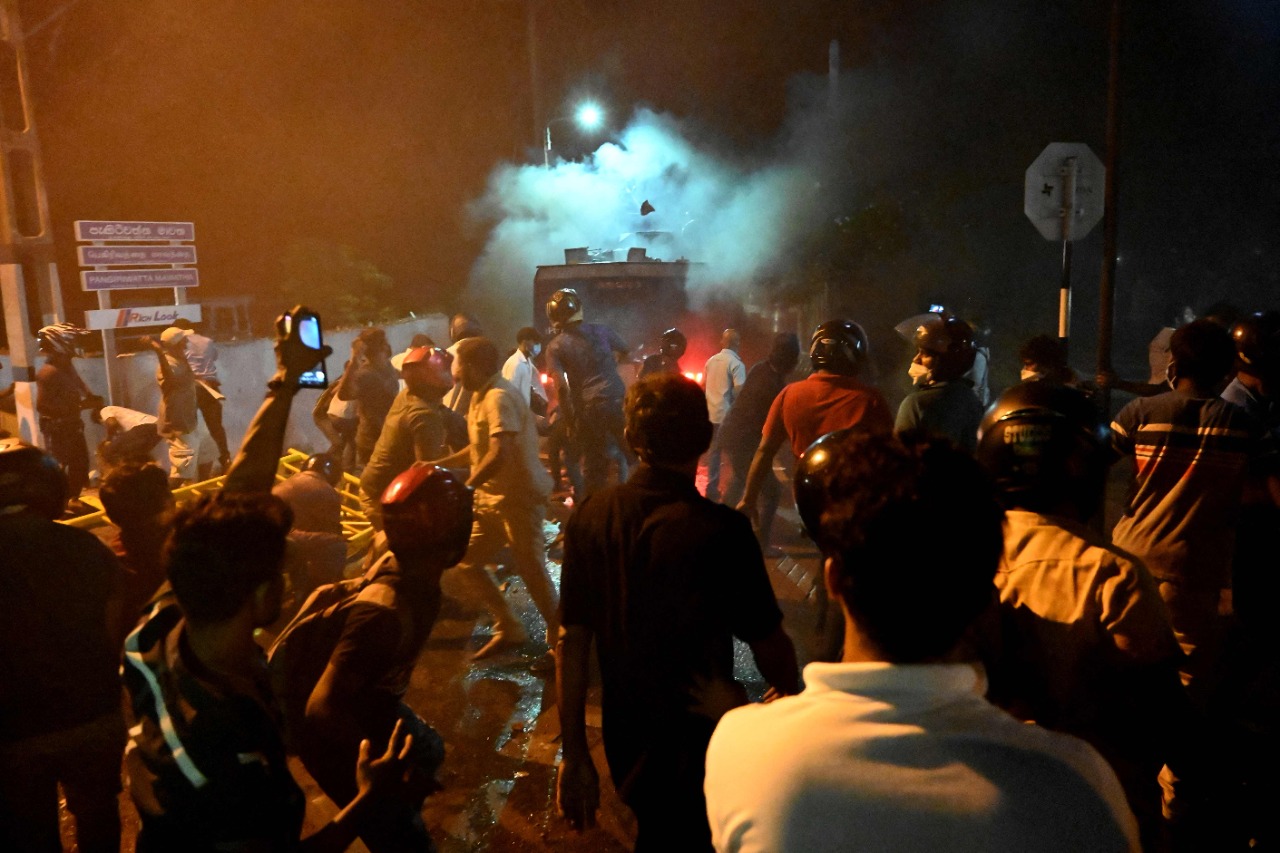
The resignation of the cabinet comes as protests flared across the South of the island last week, as an economic crisis in Sri Lanka brings soaring prices of essential goods and millions being plunged into poverty.
Last week marked a turning point as a demonstration close to Sri Lankan president Gotabaya Rajapaksa’s office saw police fire tear gas and water cannons, whilst protestors set fire to a police bus.
Dozens were injured and arrested, with reports that journalists had been assaulted by the security forces.
In response, Sri Lanka’s president declared a curfew and a state of emergency across the island. Despite the curfew, protests continued across the South, with reports of military convoys being deployed to the capital Colombo. Authorities arrested over 664 demonstrators in the Western province for having violated an island-wide curfew, which is effective until 6 am on Monday.
Read more: Curfew in Sri Lanka as anti-government protests rock capital Colombo
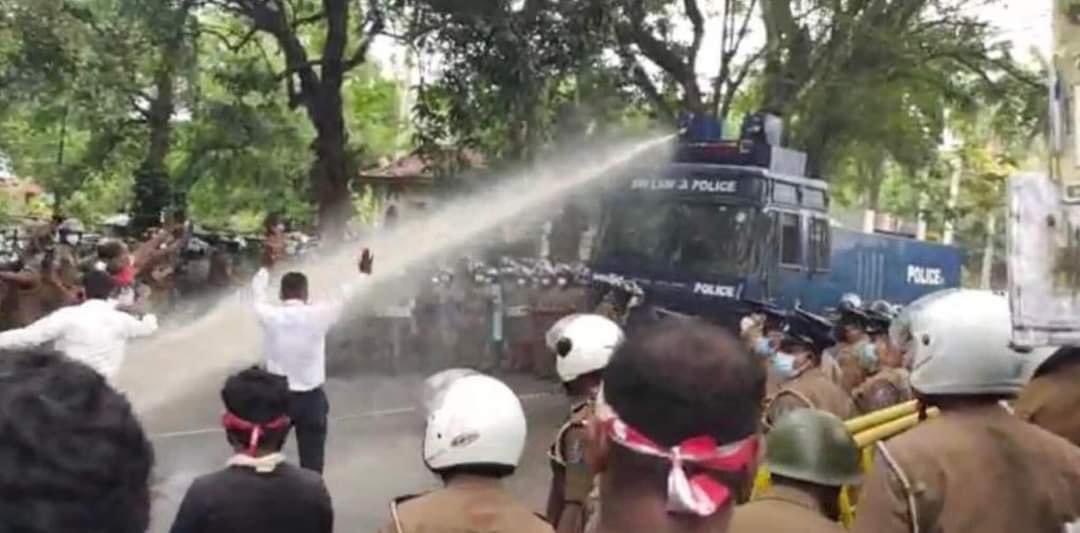
Earlier today, another protest by students in Peradeniya saw security forces fire tear gas and deploy water cannons yet again.
The protest was one of a series that were taking place across the South, despite the presence of a curfew.
Resignations in Colombo
As tensions mounted, a political crisis in Colombo ensued.
The series of resignations follows the earlier resignation of Namal Rajapaksa, Sri Lanka’s Cabinet Minister of Youth and Sports and son of prime minister Mahinda Rajapaksa. Earlier today, Namal Rajapaksa, criticised the decision made by his uncle president Gotabaya Rajapaksa to block a host of social media platforms on the island.
I have informed the sec. to the President of my resignation from all portfolios with immediate effect, in hope that it may assist HE & PMs decision to establish stability for the people & the govt of #LKA. I remain committed to my voters, my party & the people of #Hambanthota.
— Namal Rajapaksa (@RajapaksaNamal) April 3, 2022
Earlier in the day, Media Secretary to Sri Lanka’s Prime Minister, Mahinda Rajapaksa, refuted claims that he has tendered his resignation amidst an ongoing crisis that has seen increasing calls for the President to resign.
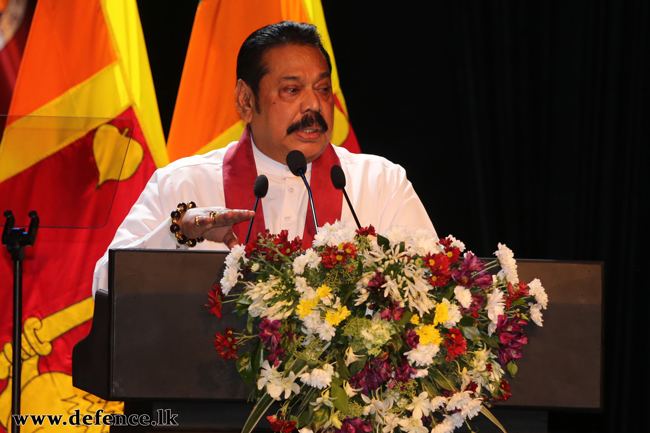
The Daily Mirror had reported that the Prime Minister was likely to step down from his position and that the administration would address the public to declare their intentions to dissolve the cabinet and form an interim government comprising of members from all parties.
Former Sri Lankan Minister Wimal Weerawansa is reported to have called for an all-party Interim Government, which News First LK notes received a "positive response" from both Sri Lanka's President and Prime Minister.
“Given the present situation in the country, we believe that the existing Cabinet of Ministers cannot function to address these crises. Therefore, we call for the Cabinet to be disbanded and reach for an all-party or multi-party agreement for an interim government,” Weerawansa told reporters.
Who are the Rajapaksas?
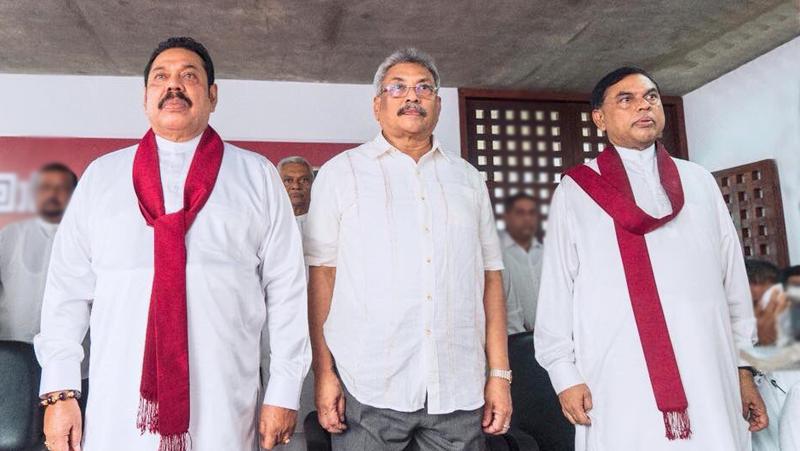
The Rajapaksa family, from Hambantota in the Sinhala South of the island, occupy several key positions in Sri Lanka’s government.
In 2019, Gotabaya Rajapaksa was elected as president of Sri Lanka, with an overwhelming majority across the Sinhala south.
His elder brother Mahinda Rajapaksa was appointed as Sri Lanka’s prime minister, whilst the youngest Rajapaksa brother Basil was finance minister, and the eldest, Chamal, agricultural minister – among the many different posts the family held.
This is not the first time that the family have been in power.
In 2009, Mahinda was president and Gotabaya the country’s defence secretary, as the Sri Lankan state launched a massive military offensive that killed tens of thousands of Tamil civilians. Several senior political and government figures, including the Rajapaksa siblings, have been accused of war crimes.
